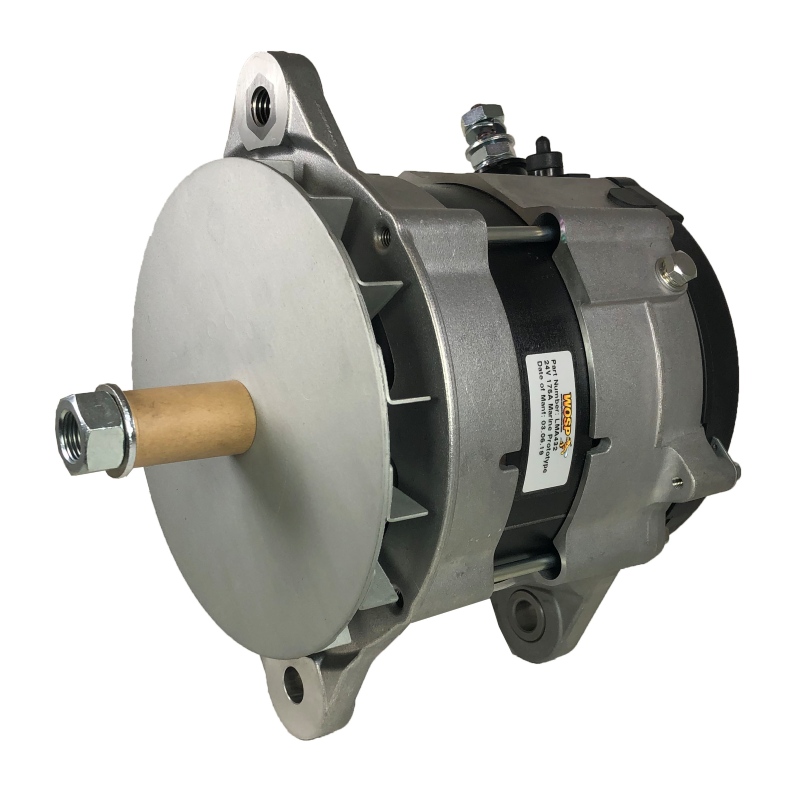
High Performance in Tight Spaces — On Land and Sea
Compact Racing & Marine Alternators are specially designed to deliver consistent power in environments where space is limited, engine speed is high, and reliability is critical. Whether you’re tuning a high-RPM race car or powering electronics on a high-performance boat, these alternators are purpose-built to handle the stress of both motorsport and marine-grade use — all while fitting into the tightest engine compartments.
These alternators combine lightweight construction, corrosion resistance, and high-output performance, making them a go-to option for enthusiasts, builders, and pros who need more power without adding bulk.
🚗🛥️ Ideal Applications
- Street/track cars with limited engine bay space
- Drift and drag race vehicles
- Lightweight performance builds (Miata, Civic, S2000, etc.)
- Boats, jet skis, and other marine vehicles with limited alternator mounting area
- Marine audio systems and lighting upgrades
- Custom watercraft or amphibious vehicle builds
✅ Key Features of Compact Racing & Marine Alternators
- Small Form Factor: Designed to fit tight engine bays or compartments
- High RPM Operation: Built to perform under sustained high engine speeds
- Sealed or Coated Housings: Resists saltwater, humidity, and marine corrosion
- Lightweight Design: Reduces rotational mass for better throttle response
- Reliable Charging at Idle: Essential for both idling race engines and trolling marine motors
- Custom Mount Options: Available for popular performance and marine platforms
🔧 Construction & Technical Specs
- Amperage Output: Typically ranges from 100A to 200A
- Idle Performance: 80A+ at low RPM for audio systems or bilge pumps
- Cooling: Available in internally or externally fan-cooled versions
- Regulation: Internal regulators with marine-safe voltage control; some external regulator support for racing setups
- Materials: Often use aluminum or marine-grade stainless housings for corrosion resistance
- Weight: Typically 5–8 lbs — significantly lighter than stock units
🌊 Marine-Specific Considerations
- Water Resistance: Look for IP-rated or epoxy-sealed models
- Saltwater Use: Requires anodized or coated surfaces to prevent corrosion
- Electrical Safety: Must comply with marine wiring and spark protection standards
- Continuous Load Handling: Built to support running accessories like livewells, fish finders, navigation lights, and marine amplifiers
🏁 Racing-Specific Considerations
- High RPM Durability: Bearings and windings rated for 8,000–10,000+ RPM
- Low Drag: Reduces power loss at the crank — important for time attack and track cars
- Voltage Stability: Ensures stable ECU, fuel system, and cooling fans under track stress
- Custom Pulley Sizes: May include or require underdrive pulleys for performance tuning
⚠️ Pros & Cons
✅ Advantages:
- Compact, lightweight, and high-efficiency
- Built for harsh conditions (heat, water, vibration)
- Supports racing and marine electronics reliably
- Many offer universal or semi-universal fitment
🚫 Limitations:
- May not offer as high amperage as full-size units (usually under 200A)
- Can be more expensive due to niche design and materials
- Installation may require custom brackets or wiring for certain vehicles
- Limited options for some engine platforms
🔋 Conclusion: Compact Doesn’t Mean Compromise
Whether you’re chasing lap times or navigating rough waters, a Compact Racing & Marine Alternator gives you the power, protection, and performance needed — all in a form factor that fits where traditional alternators can’t.
These alternators are engineered not just for size, but for survivability, stability, and real-world performance in two of the most demanding environments out there: racetracks and open water.


